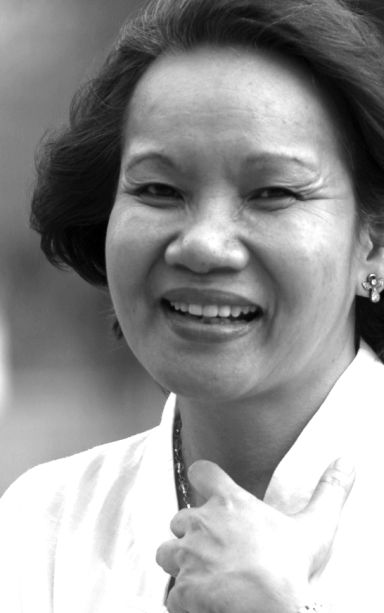
LOGARTA
The column (Sun.Star) of Lelani P. Echaves entitled “Passion and Attention” opens with: “The letter of the Redemptorists of the Philippines which was read yesterday in all their Masses was most welcome.”
It closes with: “Sadly, the country is split between people who believe in an all or nothing approach to the country’s war on drugs, and people who clamor for the return to sanity and balance in emotions.
This is disturbing to leaders whose only tool is a hammer; they tend to see every problem as a nail.
Yet, we can declare war on drugs and continue to respect the rule of law. We can declare war on drugs and yet remember that the poor man has as much right to life as the rich man. We can declare war on drugs and yet not lose our spiritual moorings.”
These are truly very sobering thoughts on National Heroes Day.
In celebration, the city honored local modern heroes; females were recognized. Philippine Panorama of the Manila Bulletin celebrated “Filipino Heroism in the 21stCentury”; they were men.
For many, heroism had been identified with military victories or great sacrifices in the battlefield. Here are women with different weapons.
In the Second World War, the Huks were among the most reliable in the resistance movement against the Japanese.
Let me share what I learned from encounters with women in the Huk Movement. Although I had interviewed a female commander who was very effective, I found out about women who were engaged with other very constructive activities.
First, the women organized the common folk in support of the guerrilla fighters. In this kind of warfare, the support of the community is very crucial; this could make a difference in terms of survival, victory and defeat.
Aside from the material support provided by the people, they can be actual hiding places for the fighters. But more than that, the women prepared a publication.
They composed songs (Tet Maceda has an entire research on them). They organized cultural presentations for the communities. With these, the spirits of the people remained high even if this was a dark period.
But the publication and cultural presentations served a significant purpose: It prevented the people from accepting the state of war and captivity as the normal situation. Complacency in the face of fascism and tyranny was avoided.
Then there was Camila Jesswani. She was a fighter but a builder of peace.
She was a leader of the Young Christian workers, who in the early ’70s was assisting female workers, salesgirls become organized.
When we were in school together, she shared the activities with us to help us put our convictions regarding justice into action by joining the salesgirls in their protest activities.
To assist the working women, she set up a canteen for them, Golden Wheat near St. Rosario Church. Then she set up a night school for workers and asked us to be the educators in this undertaking.
We admired her courage in confrontations with the lawyers of the management of the establishments where the women worked. She had very unique approaches because she was among those who had just joined the labor movement, unlike the male labor leaders and lawyers who had their own “standard operating procedures.” So at times, the opponent was caught by surprise.
So we salute all the sensitive souls responding to all those affected by the various wars going on.
We are grateful for the sense of bitterness they have reduced; we rejoice over efforts to keep the wholeness of human beings.
They are building peace even as war goes on.
Disclaimer: The comments uploaded on this site do not necessarily represent or reflect the views of management and owner of Cebudailynews. We reserve the right to exclude comments that we deem to be inconsistent with our editorial standards.
